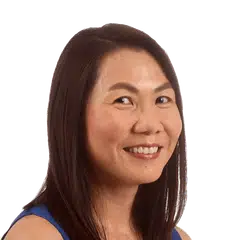School of grit: How failing grades changed the lives of successful people
Sign up now: Get ST's newsletters delivered to your inbox
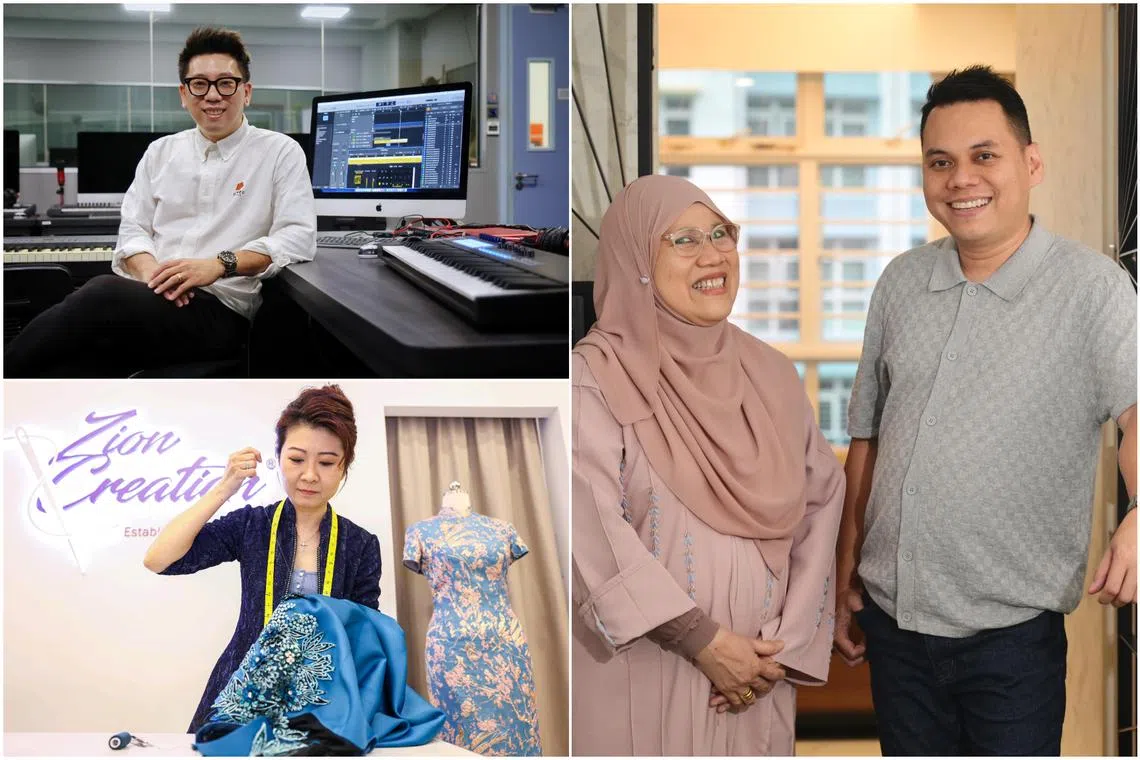
There are many reasons a child or teen does not fit into the school system here.
ST PHOTOS: JASON QUAH, AZMI ATHNI, BRIAN TEO
Follow topic:
SINGAPORE – When Mr Dayn Ng was younger, he took six years to complete his O levels after he was retained in Secondary 3 in the Normal (Academic) stream.
He struggled to find his place in the education system here. An alumnus of Temasek Primary School and Coral Secondary School (now named Meridian Secondary School), he was regularly disciplined for bad behaviour.
“I didn’t get the point of school. Even if I went there, I would just sleep,” says Mr Ng, 36, who scored 178 for his Primary School Leaving Examination in 2000.
What kept him in school was the Chinese orchestra, where he played the erhu and, later, the suona, a double-reed traditional Chinese woodwind instrument.
Even though he skipped classes, he would turn up without fail for his co-curricular activity (CCA). His Chinese teacher, who was in charge of the CCA, fought for him to become chairman of the orchestra despite his discipline issues. It was a responsibility he bore with pride.
According to Ms Tan Su-Lynn, principal educational psychologist at Promises Healthcare, parents may get frustrated with such kids who act up and think they are just not trying hard enough, but there are many reasons a child or teen does not fit into the school system here.
Some may have a different learning style and appear disengaged even though they are capable and curious. Some are not motivated by external achievements like grades, while others may lack executive functioning skills like planning and focus.
Parental pressure to do well can also lead to a fear of failure and, ironically, an avoidance of schoolwork.
“Schools do encourage holistic development, but balancing academic demands with other aspects of growth is not always easy for students,” Ms Tan adds.
Children’s diverse interests should be recognised and nurtured, says Professor Manu Kapur, director of the Singapore-ETH Center, a research foundation that aims to provide practical solutions to challenges on urban sustainability, resilience and health.
“Overly relying on one aspect of growth and development as the main instrument is not ideal for learning and, even more importantly, for the well-being of the child,” says Prof Kapur, whose new book, Productive Failure, explores the underlying science for deep learning and growth.
“We must also recognise that development rates vary widely until adulthood, which means the chances of false negatives are high. For example, I was neither interested nor good in mathematics or science until I was about 15.”
He now has a PhD in educational/instructional technology from Columbia University in the United States.
Here are stories of those who bloomed later in life.
He took six years to finish diploma
In Mr Mohammad Idris Ahmad Zaki’s case, it was his parents’ divorce when he was 12 that made him lose academic steam. He would spend a few years living with one parent and then rotate homes. His sister, older by two years, got married at an early age.
“It was a difficult period and I often felt lost and unsure about the future,” says the alumnus of Woodsville Primary School and Bedok Town Secondary School, both of which have closed. To forget his worries, he became active in sepak takraw and Malay cultural activities.
He took six years to complete his diploma in mechanical engineering from Ngee Ann Polytechnic, which included a one-year break, during which he thought hard about what he wanted to do in life.
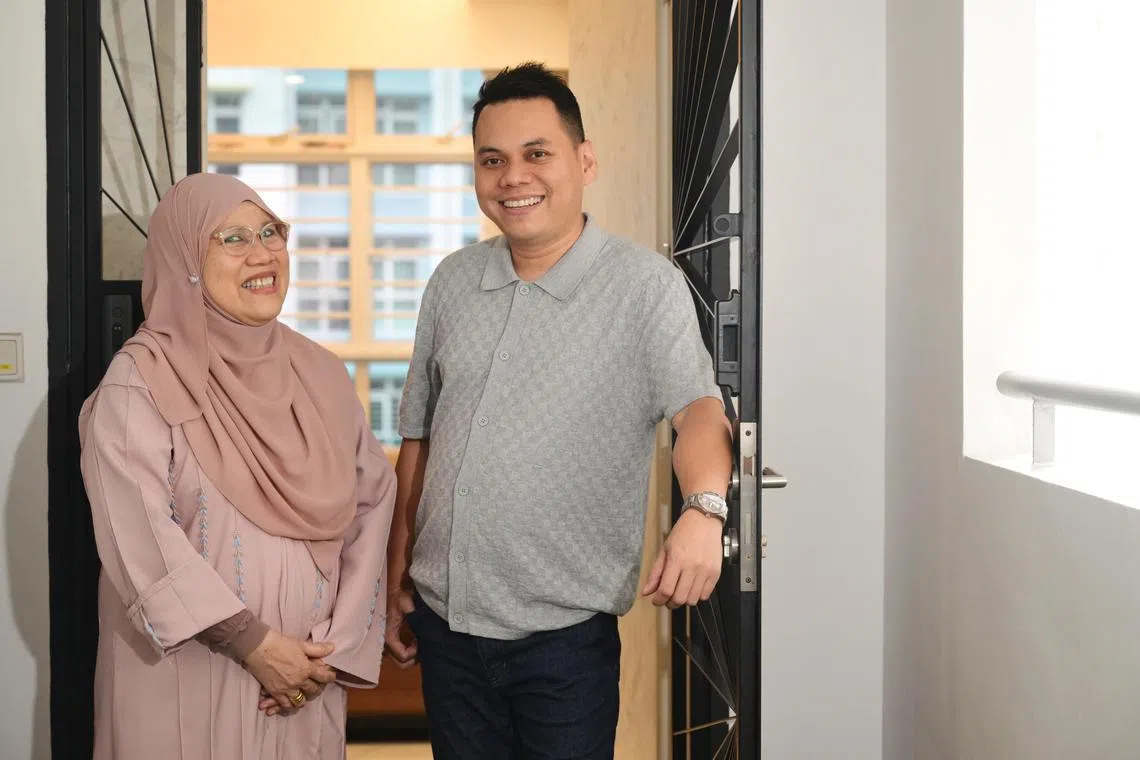
Mr Mohammad Idris Ahmad Zaki took six years to complete his polytechnic diploma. His mother Kamisah Salleh’s anguish over his academic apathy motivated him to do better.
ST PHOTO: AZMI ATHNI
Mr Idris, 44, who graduated in 2010, says it was his mother’s tears over his academic apathy around 2007 to 2008 that finally triggered him to action.
“I didn’t want her to be upset, so I gave it a go again. She told me that without any certificate, I wouldn’t get anywhere,” he says of his mother, who worked as a cashier.
Spurred on by seeing his friends upgrade themselves, he has since graduated with a bachelor’s degree in logistics and supply chain management and Master of Business Administration (MBA). Both degrees are from Northumbria University via Kaplan Higher Education Academy, a private education institution.
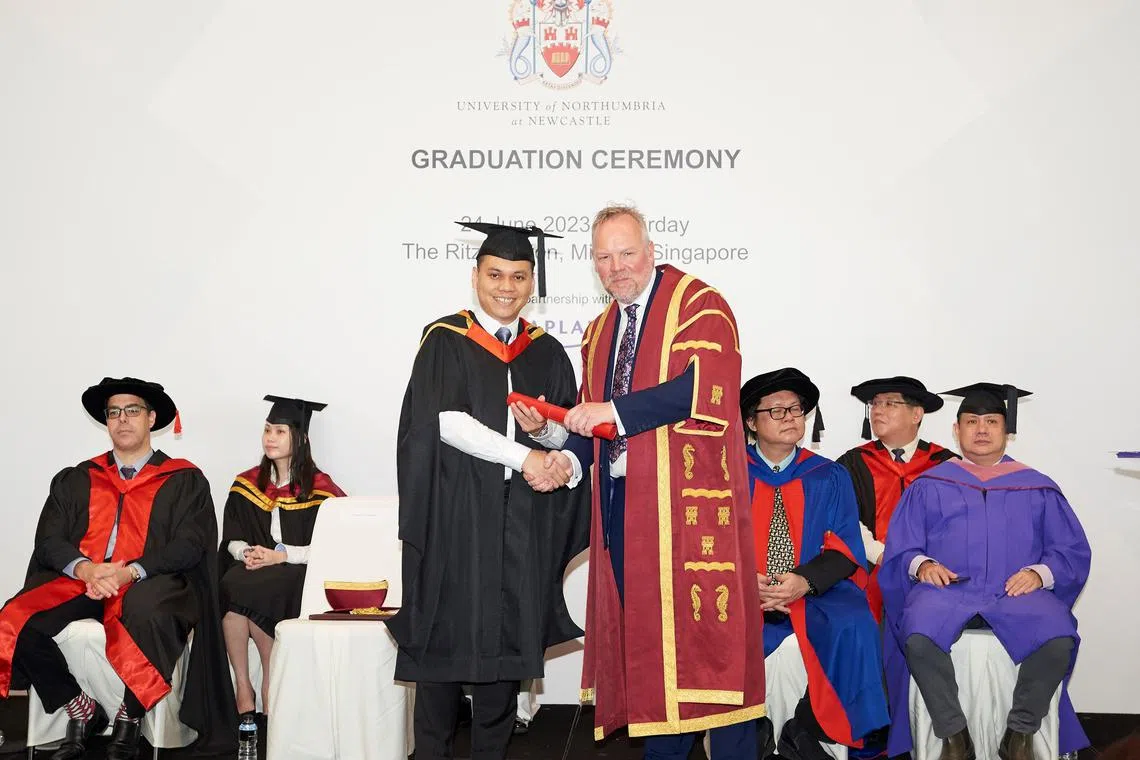
Mr Mohammad Idris Ahmad Zaki continued to upgrade himself and now has a Master of Business Administration degree from Northumbria University via Kaplan Higher Education Academy.
PHOTO: NORTHUMBRIA UNIVERSITY
He even received a commendation for his MBA, making him the only male Malay graduate to do so in his batch in 2023. The aviation company he has worked in for the past 13 years sponsored his further studies.
“Getting my degree despite all the bad results in the past has been incredibly rewarding and has reinforced my belief in my abilities,” says the father of two, now a trainee workshop engineer who hopes to further his career and lead a company one day.
Indeed, psychologist Ms Tan says there can be tipping points when a person who has failed suddenly finds the motivation to turn things around. Such moments of “awakening” can happen when there is timely encouragement from a mentor, a burgeoning career interest or the sudden realisation of missed opportunities.
“Parents, educators, mental health professionals or even peers who help a student reframe their experiences can act as catalysts for this shift. Support at the right time can prevent despair and restore confidence,” she adds.
10 years later but never too late
Mr Ng, who struggled in secondary school, is now an accomplished producer, composer and sound artist.
In 2021, Esplanade – Theatres on the Bay commissioned his band, Musa Music Collective, to create Reflections, an interdisciplinary concert. It was part of Huayi – Chinese Festival of Arts.
The Singapore Chinese Orchestra has also commissioned many of his arrangement works over the years, and his sound art installation was featured at the Singapore Night Festival 2023, in collaboration with the Nanyang Academy of Fine Arts (Nafa), University of the Arts Singapore.
Musa’s YouTube channel, which has over nine million views, opened doors to foreign music events, such as the Sarang Music Festival and Indian Ocean Music Festival, as well as a television variety competition in Guangzhou, China.
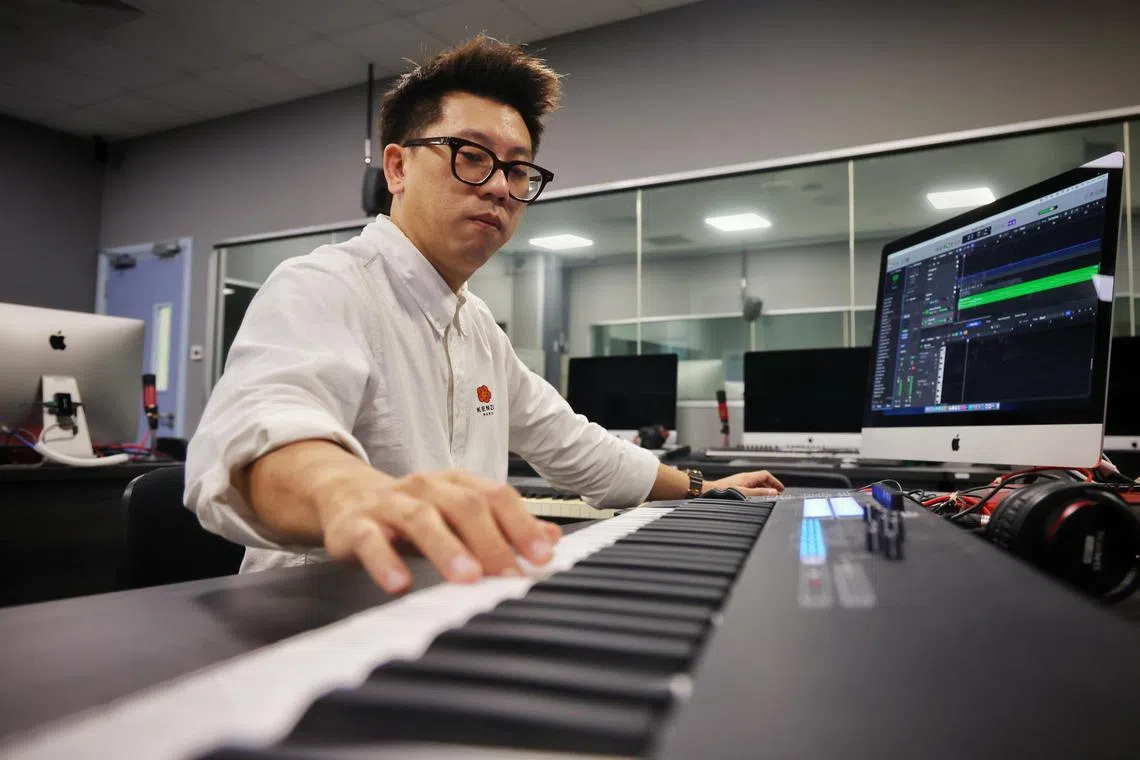
Mr Dayn Ng took six years to complete his O levels but is now a lecturer and programme leader at the Nanyang Academy of Fine Arts.
ST PHOTO: JASON QUAH
He credits the suona instructors who recognised his potential early on and encouraged him to pursue his interest, as well as his lecturers at Nafa, where he completed his diploma in music in 2013, majoring in suona during the first two years and switching to composition in his final year.
“I was lucky there were people who saw some good in me. That’s why I try to give back,” says Mr Ng, who returned to Nafa as a lecturer and programme leader (digital and innovation).
He jokes that he is always 10 years behind his peers.
When they were moving up the career ladder or doing their master’s degrees in 2015, he had just graduated with a Bachelor of Music (Honours) degree in composition from Nafa and the Royal College of Music in London. He was then 27.
“I see it as validation. I never knew I could get a degree,” says Mr Ng, who is married to bandmate Sophy Tan, who is in her 30s. They have a nine-month-old son.
In 2022, he was awarded a National Arts Council scholarship for a master’s degree in music production, technology and innovation at Berklee College of Music in Valencia, Spain. He graduated with distinction.
“I set certain goals for myself to work towards. This is something that I didn’t expect myself to do because I didn’t have the confidence during my school days,” he says.
“I want to be the teacher that I once had, to inspire young people and make them feel that it’s okay to fail. While achieving results is important, the process of learning will strengthen us, laying a strong foundation for future success. Sometimes, we just need a little more time.”
Finding success by being curious
Is the moral of the story to try to find your big passion? Leadership transformation coach Crystal Lim-Lange says this is a misconception, as one’s passions may change over time.
“Rather than trying to fixate on the one that is ‘right’ for you, it’s more important to cultivate a mindset of curiosity and constant learning,” says the chief executive of Forest Wolf, a consultancy that specialises in leadership transformation and personal growth.
“Before we can ‘connect the dots’, we first need to ‘collect the dots’. That means we need to try out many new, diverse experiences to gain self-awareness and understanding.”
In other words, it is just as important to know what you do not want to do. Ms Lim-Lange co-wrote the best-selling book Deep Human (2019), which describes the “superskills” people need for future success.
She adds that career research supports the theory of happenstance first created by the late Stanford University professor John Krumboltz. This suggests that most successful career decisions arise from unplanned events that lead to new opportunities, such as a random conversation with someone that turns into a job offer.
“The theory suggests that people can increase the surface area of their luck by being curious, persistent, flexible, optimistic and developing a variety of meta-skills like social emotional intelligence. And if you have those underlying ingredients, you’ll never be at a loss for what to do in life,” she says.
Ms Lorraine Lee’s story bears this out.
Introverted as a child, she was bullied in school and did not do well in her O levels in 1988, failing history and gaining D7s in English, literature and Bible knowledge.
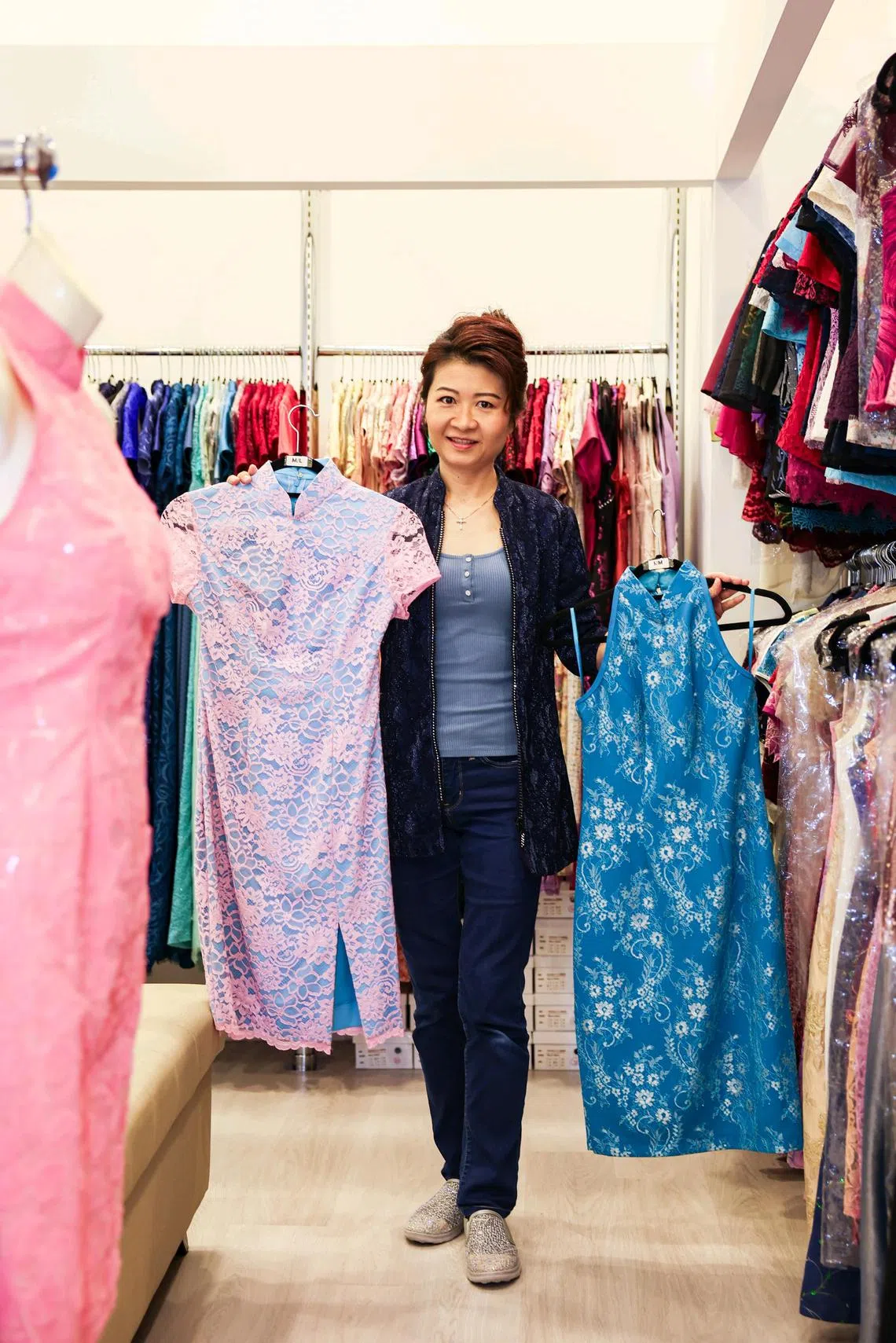
Ms Lorraine Lee, founder and creative designer of Zion Creation boutique, has come a long way from her early days when she struggled to get good grades.
ST PHOTO: BRIAN TEO
While her friends from CHIJ St Joseph’s Convent went on to junior college, she started working, partly also because her late father’s carpentry business was doing badly and her mother was a housewife.
Ms Lee was a pre-school Chinese teacher for about four years – she scored a C6 in the subject – and started a side hustle sewing clothes for her colleagues and friends. It was a skill she enjoyed and improved on after learning it during home economics classes.
In 1993, when she was 21, her parents spent about $20,000 to secure and fit out a 200 sq ft shop space called Sugar Dreams Collection in Upper Serangoon Shopping Centre for her to sell custom-made and casual wear for women. She harboured dreams of being a fashion designer, but did not have any experience running a business. She closed it three years later.
“I couldn’t study. I couldn’t do business. What was I supposed to do with my life?” she remembers thinking at the time. “It was quite a big hit because I wasted so much of my parents’ money.”
She worked as a designer at a bridal shop and managed another boutique for about two years, but was bullied by the staff in the latter job.
But by then, she had saved up enough to reboot her dream. Zion Creation opened in Orchard Plaza in 1998 in a space so small, she could barely fit in a table, sewing machine and a fitting room. She sourced most of her furniture from Ikea.
By chance, a company that had three shop units in Arab Street, where she sourced for fabrics, took her on as a freelance designer. This helped boost her income and client network.
The 52-year-old, who is married with no kids, says her Christian faith has kept her going through business highs and lows.
She has an office, showroom and workshop in the Tai Seng area and opened Zion Creation’s retail shop at CityLink Mall in July 2023 featuring custom-made and off-the-rack evening gowns, dresses, modern cheongsams and separates.
Prices start at $300 for a silk skirt and go up to $2,000 for a custom-made cheongsam. Her clients include tai-tais and ambassadors’ wives, and she has a staff of 12.
“Some people can study and some people prefer to do hands-on things, which is also good. You can pick up a skill that can contribute to society,” she says.
Correction note: In an earlier version of the story, we said that Kaplan Higher Education Academy was a private university. Kaplan has since clarified that it is a private education institution.

